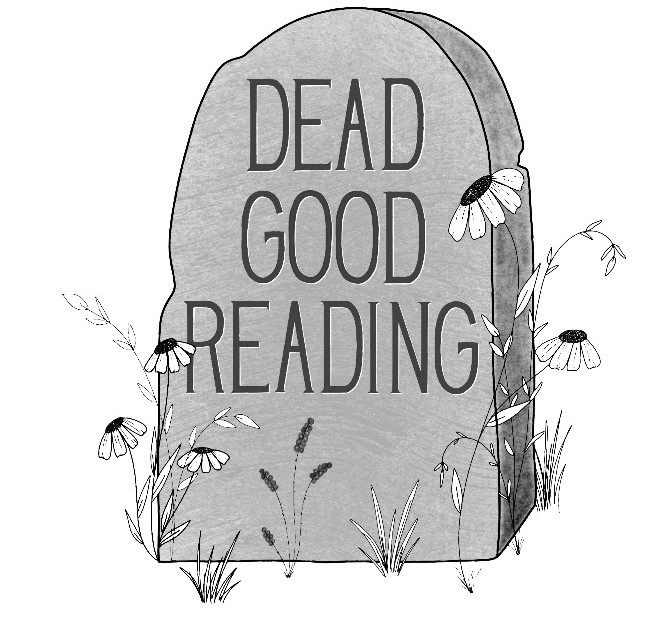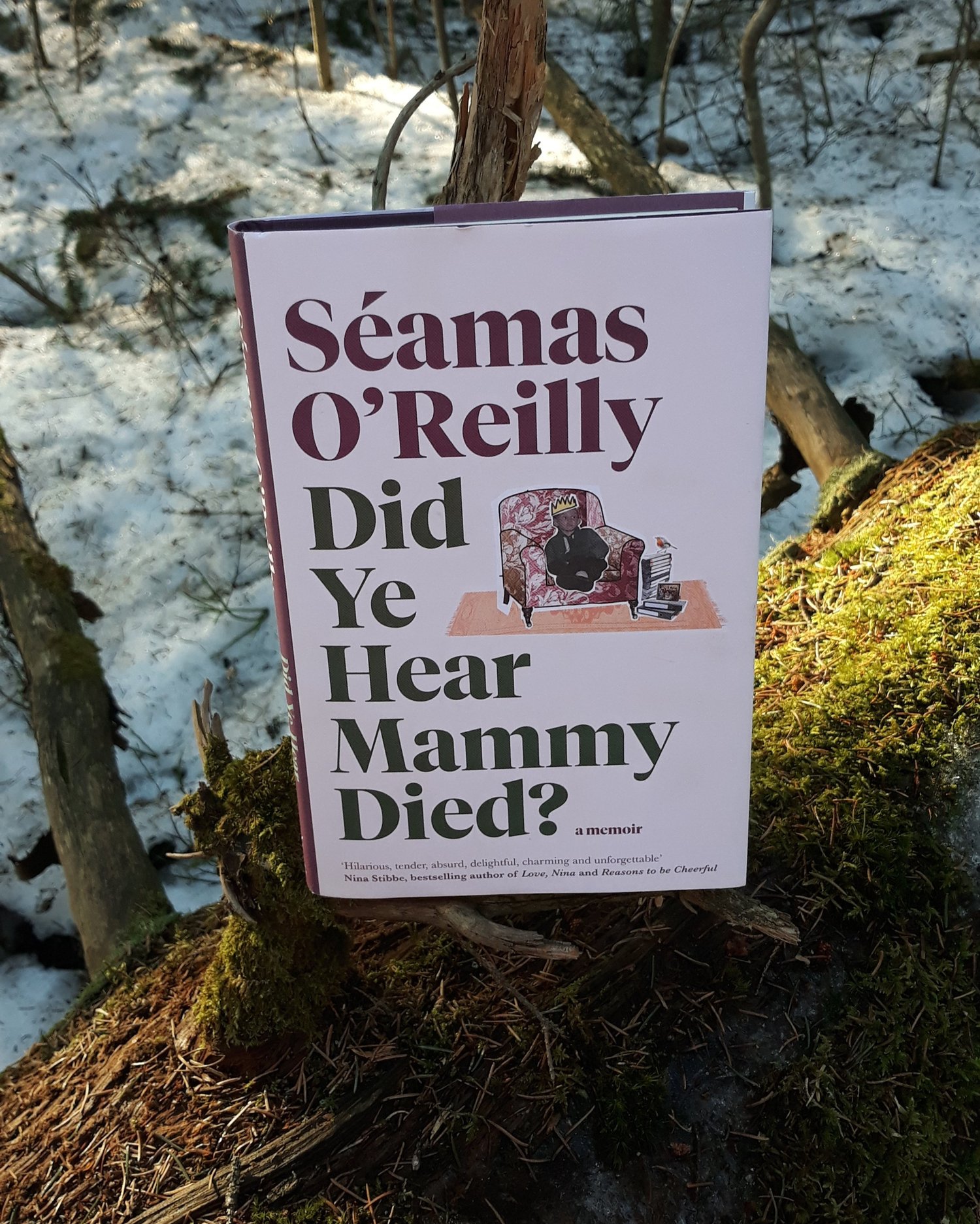This month I am taking part in Memoir March. Memoirs are an interesting genre of books. Memoirs are based on people’s life stories but memories are not fixed entities, instead feelings towards, and interpretations of, memories might change over time. Furthermore, whilst memoirs are based on ‘true events’, sometimes the truth needs to bend to fit the narrative. Memoirs around grief, dying and loss appear to be sprouting everywhere and I was spoiled for choice when selecting books to read.
In Did Ye Hear Mammy Died? Séamas O’Reilly writes about the death of his mother Sheila, who died when he was just 5 years old. While we are continuing with the theme of parental bereavement, Did Ye Hear Mammy Died? has a very different tone to Narratives of Parental Bereavement which we discussed last week. Put simply: Did Ye Hear Mammy Died? is hilarious. This might not be what you expect when reading a book in which death and loss is the main thread, but I can honestly tell you this is one of the few books I have read in my life that I had to put down because I was shaking with laughter- I read part of this in bed, late at night, and I think my snorting woke my partner several times.
A lot of O’Reilly’s upbringing just sounds bonkers and fictional. I am sure parts of the book are exaggerated for dramatic affect, but some basic facts about O’Reilly just seem the perfect breeding ground for comedy. Firstly, he is one of 11 children. Eleven. Children. My mother is one of seven children, which I have always considered A LOT, but after number 7 my grandparents’ priest announced that the pill was considered OK. So while my grandmother gave birth to seven children in eight years (which I have also always found an insane fact), there never was a number 8. But perhaps 1960s the Netherlands was more progressive than 1980s Ireland.
O’Reilly grew up in Derry, Ireland. Prior to reading O’Reilly’s memoir all my knowledge of Derry has been based on the television series Derry Girls, which is similarly funny. What this sample of cultural outputs from Derry tells me is that, despite the Troubles, Derry is either a really funny place, or people are in desperate need of comic relief to get by. I like to believe it is the first rather than the latter.
O’Reilly is one of the youngest siblings and was just five years old when his mother died. Too young to grasp the emotional impact of this loss, O’Reilly delivered the phrase “Did ye hear mammy died?”, ‘like a chipper little maître d’‘, with a smile on his face to the many people that came to their house for the wake of his mother.
In death studies literature, Irish funerary customs are often praised and considered very inclusive of the dead body, and considered a community affair. O’Reilly offers some insightful reflections on an Irish wake:
“Wakes surround you, smother you even, with loved ones and acquaintances and workmates and long-lost palls, prompting a cycle of social interaction that gives the entire process a strangely unreal tinge. Perhaps that’s the point, and the whole system is just a ruse aimed at preventing emotional breakdown by demanding a ritual period of event management for the mourner”
— Did Ye Hear Mammy Died? Page:13
The memoir is filled with lovely anecdotes and childhood memories. O’Reilly’s father, who became the single parent of the 11 children is in many ways the star of the show. It must be hard for any remaining parent to be the one to stay behind, but O’Reilly’s dad did not have much time to dwell on this fact as he still had his cackle of children to take care of.
While O’Reilly couldn’t fully grasp the death of his mother when it happened, as he grows older there is a sense of missing and an inkling of jealousy towards his older siblings who had more time (and thus more memories) with his mother. So while the tone is predominantly light, this is still the story of a boy that deeply misses his mother, and what their relationship could have been.
I may have read this memoir a little too much like an ethnography of large Irish families, but in the pages a wealth of information about both the everyday life of ridiculously large Irish households as well as ‘Irish culture’ (in quotations as ‘culture’ is not a fixed entity but always in flux…) is made available to the reader.
“Older Irish women posses an uncanny ability to fear nothing as much as causing offence, while being so clumsily, dependably offensive it would almost be better they never spoke at all. One time, Colum Dineen’s mum was driving me home when she quietly said, ‘You’re all great,’ while crossing herself, as if my family’s experience was itself contagious, a harbinger of death against which was needed specific and ritualistic protection right there and then”
— Did Ye Hear Mummy Died? Page:46
O’Reilly skillfully talks about death and loss, weaves in cute anecdotes with poignant reflections, and shows that even when disaster hits a household, there is still a lot to laugh about. Did ye hear mammy died, is by far the funniest book I have read this year and I doubt any other grief memoir will surpass it.


Leave a Reply